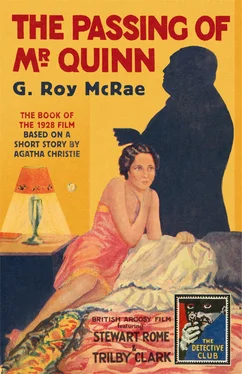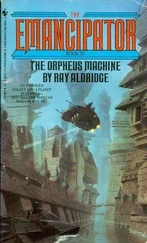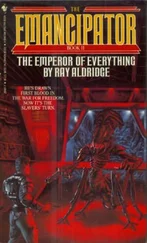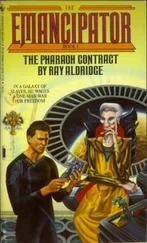At a distance of little more than five miles away the stately old pile of Capel Manor reared itself against the night sky, its windows lighted and warm with red blinds.
In the drive outside the front door stood a giant Mercedes car, its engine purring almost silently. The owner of the Manor, Derek Capel, had returned home at nearly midnight, after one of his wild and reckless rides through the countryside, but since none of the servants, least of all Derek Capel himself, knew whether he should want the car again, it was left with its engines still running and its headlamps cutting swathes of light through the trees in the drive.
Derek Capel had entered the house briskly, as was his wont, drawing off gloves and coat, with a cheery word for the butler who had opened the door for him, and an ever ready smile on his dark handsome face.
Some people said that Derek Capel was too ready to smile these days. It was as though he were endeavouring to flout cruel Fate who had played so many capricious tricks with him.
Young, handsome, and well endowed with the riches of the world, life should have been pleasant enough for him. And indeed, it could not be said that he did not squeeze every ounce of pleasure from life. His daily and nightly programme was one whirl of gaiety. He was supposed to have attended a society dance in London that night, and he was still in evening dress. But he had long since left the reception hall, and climbed into his car, to drive it recklessly, restlessly through the night.
Women as a rule liked Derek Capel. He was young, eager, and he gave promise of being an ardent lover.
His utter recklessness allied to his jovial laugh and charming manners seemed to the opposite sex to be the concrete of that which is most elusive in life—Romance. And even discerning mothers, who looked upon Derek Capel as an eligible bachelor, did not forget that despite his apparent irresponsibility—say at Brooklands Racing Track, where he was a skilful, as well as a reckless driver—he always managed to emerge triumphant and laughing from his many adventures.
If he dabbled on the Stock Exchange the shares were sure to rise, and Derek Capel was sure to sell out at the right time. He was one of Fortune’s favourites.
Yet one would scarce have thought so on seeing him enter the hall of Capel Manor. He handed his hat, gloves and overcoat to the butler with a brisk little nod, but once having dismissed him he stood on the hearthrug fingering his short moustache, and into his face crept a haggard, weary look such as few people had seen there.
‘Gad!’ he murmured. ‘If only I could keep away from the place. If only I could forget!’
That was impossible and he knew it. Life had made of him a spoilt darling—and thwarted him of the one thing he desired above all others. Derek Capel, with a long line of imperious, head-strong ancestors behind him, men who had carved their paths to fame and fortune through all manner of adversities, was not the man to take disappointment lightly.
Indeed, he had taken his blow very hardly indeed.
He strode to the mantelpiece now, and took up a photograph. His dark, handsome eyes were haunted with pain as he gazed at the likeness of Eleanor Appleby.
They had been sweethearts as boy and girl. As he had grown up he had come to love her with that apparently brotherly camraderie that really disguises a very deep-rooted and passionate feeling. He had always understood that one day he should take his bride … And then had come the bombshell—her marriage to Professor Appleby.
Derek Capel’s teeth showed as a white bar in his tanned face, and for a moment the dancing butterfly of London ballrooms looked wolfish. ‘Curse the fellow!’ he raged. ‘Heaven knows what fiendish tricks he plays. Oh, I’ve seen ’em together! If I could only catch him treating her badly—’
It was then that there sounded a knock at the door, and the butler entered to announce that the gardener at the Lodge had called, and wished to see Mr Capel on a matter of great urgency. He bore a message, he said, from Mrs Appleby.
Derek could hardly restrain his eagerness. He had the aged gardener brought in, and almost snatched the note from him. When he had read it he had looked up, his lips moved voicelessly.
‘Come round … her husband!… Afraid!’
It was on him, too, that strange premonition of disaster, as he stared unseeingly before him for a moment. He was aware that he was trembling a little. His thoughts were like horses out of hand. They galloped away with him. And they were a strange mixture of murderous thoughts, and joyful ones—joyful that Eleanor should have sent to him for aid.
Suddenly he clenched his fists and turned away.
He wanted only a pretext to visit the Lodge, and that was easily supplied. Professor Appleby and he were neighbours, and he often visited there, though he seldom saw Eleanor. They had this much in common, that they both had a love for books, and in particular for rare volumes.
On Derek Capel’s last visit, Professor Appleby had expressed a great desire to see a rare first edition of a book on mediævel witchcraft and poisons which he possessed in his library. The younger man had almost forgotten the matter, but now he remembered it again, and thinking it would serve as an excuse for his midnight call, he hurried to get the book.
Snatching hat and coat from the butler, he flung himself recklessly in at the wheel, and sent the long, low Mercedes car travelling through the night like some incredibly swift dragon with its two lighted eyes.
He did not drive the car in through the gates of the Lodge, but drew her to a halt outside and got out with a curiously set face, his dark eyes glowing.
The bare wintry branches of the trees on either side of the drive seemed to stretch out despairing arms to one another as Derek Capel hastened up the drive. Somewhere an owl hooted dismally, and the sound tore at the man’s nerves. To him the house that sheltered Eleanor Appleby seemed a place of queer dread tonight, yet it lured him on, drew him unresistingly as if on a cord.
He rang the front-door bell, and was almost glad to see the bulky figure of Professor Appleby coming himself to answer it.
They kept up an appearance of neighbourly friendship, though Derek Capel was sensible of a latent suspicion, mingled with cunning amusement, in Professor Appleby’s eyes at times as he regarded him. The professor seemed delighted to cast Derek Capel and Eleanor together as much as possible, though he was always there to watch them. The younger man had no doubt but that Professor Appleby guessed his secret, and took a malicious enjoyment in taunting him.
Himself, Derek Capel, cherished a flaring hatred for the scientist. It was a hatred that almost frightened him by its violence. He conceived that even if Professor Appleby had not married Eleanor, they were born for mutual dislike. The astonishing part was that he dissembled his real feelings with a cunning that was alien to him. He pretended to a hearty good-fellowship with his neighbour.
… And all the time in his heart there was that bitter hatred that went hungry for revenge.
Professor Appleby’s white shirt front gleamed at him as the door opened. The great white face with its peculiarly bright eyes dropped the monocle, the eyebrows lifted in surprise, and the lips twitched with their hateful smile.
‘Why, it’s Capel! Come to give us a look-up on his midnight tear through the country.’
‘Frightfully sorry if I’m worrying you,’ said Derek Capel hastily. ‘I saw the light in your windows, so I thought I’d look in and see whether you were up. Fact is I’ve been carrying this book you wanted about with me in the car, and it’s just occurred to me.’
He held out the book, and his host immediately pounced on it. He turned over its binding, and in a new tone of cordiality invited his midnight guest into the study.
Читать дальше












